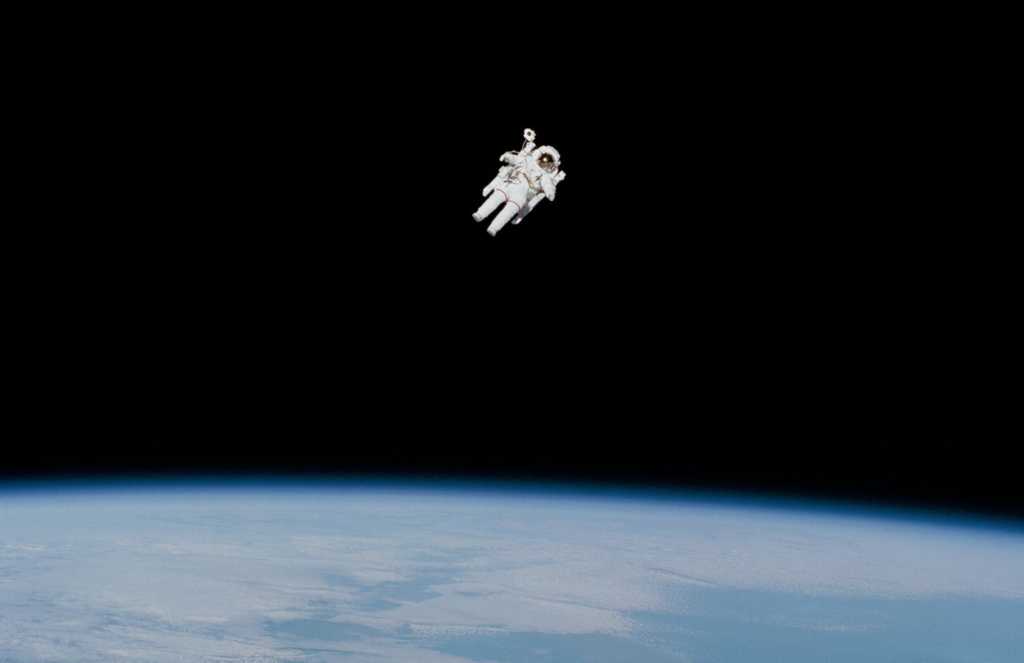Scientists believe there are billions of planets in the universe and the jury is still out on the possibility there could be intelligent life on any one of them. The answer to that question, though, has far-reaching theological implications.
Deborah Haarsma, president of the BioLogos Foundation, which advocates an evolutionary view of God’s creation, addressed that very possibility during the organization’s conference last week. She claimed the Gospel would not be called into question by the existence of intelligent, redeemable life on other planets.
While some believe the Bible only accounts for human beings on earth and couldn’t accommodate the redemption of alien life, Haarsma suggested Scripture’s message — and Jesus’ sacrifice — is robust enough to account for life elsewhere in the universe.
‘I Can Only Imagine’ Director Explains How His Movie Is Spreading the Gospel to China
The Christian message, the BioLogos president argued, accounts for all of humanity, even though Jesus’ earthly ministry was focused almost exclusively with one demographic in a singular geographical region.
“God’s revelation was very particular for a particular culture and a particular place. But yet, the claims of Scripture are cosmic,” Haarsma said, according to The Christian Post. “In Colossians 1, it says that ‘in him, all things were created: things on heaven, things on earth, visible, invisible, thrones, powers, rulers, authorities.’ All those things were created through him and for him.”
So how could potential intelligent life on other planets find redemption? The answer to that question is a bit trickier, but still one Haarsma ventured to satisfy.
Haarsma suggested three possibilities: Jesus’ sacrifice on earth alone redeemed the entire universe, life forms on other planets made different choices from humans when it came to sin, or God may have been incarnated differently on other planets to provide redemption in those worlds.
What have others said?
She’s not really alone in believing there could be more out there than just us.
C.S. Lewis pondered the possibility of intelligent life in the vast expanses of the universe. In his lesser-known work, “The World’s Last Night: And Other Essays,” the author asked, “How can we, without absurd arrogance, believe ourselves to have been uniquely favored?”
If life did — or does — exist on other planets, Lewis said there would be three key determinations to make: do these beings think rationally, do they have a “spiritual sense,” and are they fallen like humans?
The famed writer said if the answer to all three of those questions is “yes,” then it might be human beings’ task to evangelize them, according to the Religion News Service.
“Those who are, or can become [God’s] sons, are our real brothers even if they have shells or tusks,” Lewis wrote. “It is spiritual, not biological, kinship that counts.”
Christians Should Embrace Offensive Situations In Our Hypersensitive Culture
Even the late evangelist Billy Graham was unfazed by the suggestion there might be life on other planets, convinced the Gospel could still stand tall in the face of such a gargantuan discovery.
In his 1988 book, “Answers to Life’s Problems,” Graham — responding to a question from a student studying physical science — said he can “find nothing that would change our essential faith in the Gospel if we did discover life on other planets.”
“Our Bible is clearly designed for this particular planet with its particular problem of man’s sin. When we observe this fact we are on safe ground,” Graham wrote. “It is not a part of the Bible’s message to inform us of what God has done elsewhere. Its message is concerned with earth dwellers, their origin, the reason for their existence, the cause of their misery, and the plan of redemption for a fallen race.”
Much like Haarsma, Graham said the potential intelligent life on other planets is either “not involved in the sin problem,” or if they are, “God has made satisfactory provision for them.”
“The God of the universe is the God of our Lord Jesus Christ,” the evangelist added. “He is entirely able to support all of creation and is able to govern it in righteousness.”
As of right now, we don’t really know about life on other plants — we might not ever know. But it seems like the Gospel will do just fine either way.



